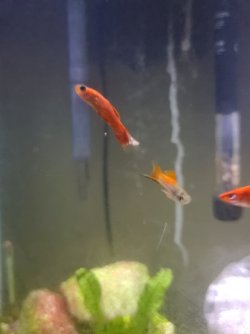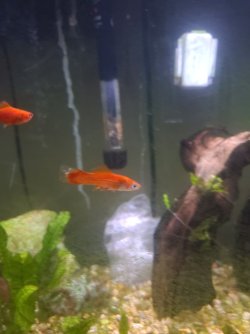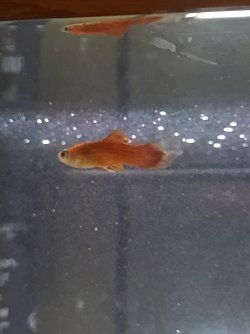I have a 29 gal lightly planted tank with two young bristlenose plecos and a varying number of swordtails. Every few weeks, one of my swordtails dies. For a few days before hand they look a bit off. Sort of arched and skinny. Then they get lethargic and then they die.
I have one in the arched and skinny stage right now. I suspect she'll be dead within a week. I've tried to get some pics, hopefully they help but she didn't cooperate very well.
They aren't all old, some of them have been less than a year (born in my tank) others are ones I've bought sono idea how old they are. The deaths don't seem to be associated with either new lutchases or water changes or anything I can pin down. They have all been bought from the same store (basically everything in my tank is from there).
Water parameters: no ammonia, nitrites, or nitrates. Ph around 7.5. Hardness off the charts.
Any ideas, suggestions, or questions?
I have one in the arched and skinny stage right now. I suspect she'll be dead within a week. I've tried to get some pics, hopefully they help but she didn't cooperate very well.
They aren't all old, some of them have been less than a year (born in my tank) others are ones I've bought sono idea how old they are. The deaths don't seem to be associated with either new lutchases or water changes or anything I can pin down. They have all been bought from the same store (basically everything in my tank is from there).
Water parameters: no ammonia, nitrites, or nitrates. Ph around 7.5. Hardness off the charts.
Any ideas, suggestions, or questions?




